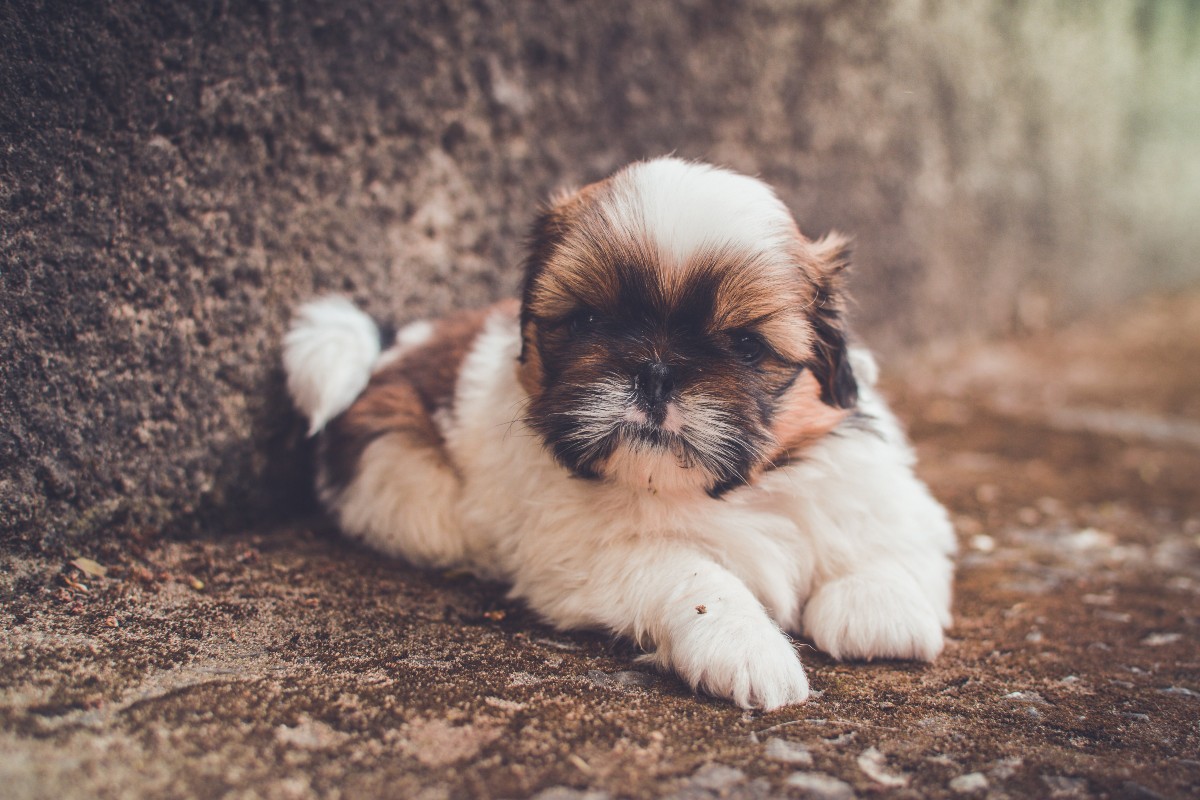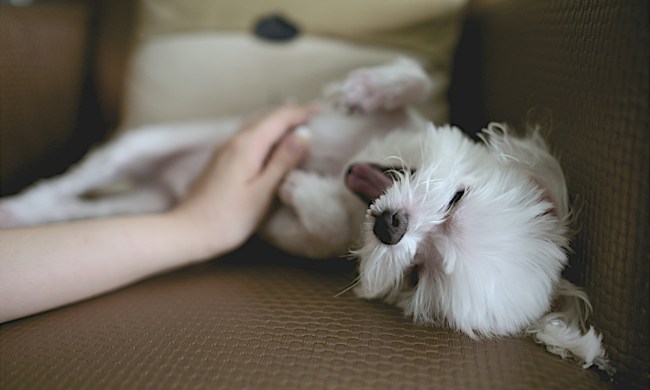Shih Tzus are considered toy breeds. As adults, they generally measure eight to 11 inches and weigh nine to 18 pounds. These pint-sized pups are full of personality! They’re also generally cheerful and energetic.
Shih Tzus have a reputation for adoring their human caretakers. If you’re planning to adopt one, know that your new friend will probably run to greet you—perhaps with a few happy barks—when you arrive home, making you feel good no matter what happened that day. They’ll also curl up with you on the couch and in bed, providing you with endless love year-round and a nice foot warmer during the winter.
Sadly, Shih Tzus aren’t around forever. How long do you have with your little furball? The answer varies, but there is a general Shih Tzu life span. Let’s find out how you can keep your pup healthy and happy for as long as you can.

What is the average Shih Tzu life span?
The average life span of a Shih Tzu is about 10 to 18 years, according to the American Kennel Club (AKC). VCA Hospitals puts the average life span at 11 to 14 years. Remember, these numbers are averages. Some Shih Tzus will live longer lives, and others will, unfortunately, live shorter ones.
Ultimately, your dog’s life will depend on their overall health. Shih Tzus are typically healthy dogs but are more at-risk for certain conditions and issues, including:
- Drowning: Shih Tzus have heavy coats and short faces, making swimming tough for them.
- Heat exhaustion: Because of their coats and their face size, Shih Tzus tend to overheat more quickly than other breeds.
- Eye problems: Cataracts, retinal detachment, and corneal dryness and inflammation are all common in Shih Tzus.
- Joint problems: Shih Tzus are susceptible to such ailments as patellar luxation (slipped kneecaps) and hip dyslexia.
How to keep your Shih Tzu healthy
You can’t protect your pup from everything—life and genetics can get in the way, just as they do with human health. The good news is that there are ways to keep your Shih Tzu happy and healthy for as long as possible.
Keep their water dish full
Because Shih Tzus are prone to overheating, it’s essential to have plenty of water for them, particularly in warmer weather. Drinking water will help your Shih Tzu regulate their body temperature and protect against dehydration. It can also aid digestion and cognitive function and help prevent diabetes and kidney failure.
Beware of the heat
Shih Tzus don’t do well in hot weather. When temperatures are scorching, try to keep your Shih Tzu inside or else find a shady spot to sit if you’re sharing an outdoor adventure. Never leave your Shih Tzu unattended in a car, regardless of the temperature outside. Studies have shown that a 70-degree day can feel like 115 degrees in a car for your pup. It’s better to leave your Shih Tzu home alone with the air conditioning on than have them accompany you on errands.
Avoid swimming
Shih Tzus aren’t typically the type of dog to dive into a pool or scamper into the ocean with you. It’s best to leave it that way, as these pups simply aren’t born-and-bred swimmers. Find other ways to keep cool, such as cuddling under a tree or on the couch with the air conditioning blasting. If you do bring your Shih Tzu to a pool party, be careful that they don’t follow you into the water. (They love you so much that they just might try.)
Schedule regular vet visits
Vets can catch issues before they become big problems. Be sure to visit your vet at least once or twice a year at their direction. During these visits, your vet will check out your pet’s joints, including their knees, and can notice red flags for conditions like patellar luxation. They’ll also examine your Shih Tzu’s eyes for conditions like keratoconjunctivitis (dry eye). From there, you can discuss ways to mitigate or treat an issue. Be sure to discuss vaccinations with your pet—diseases like rabies are preventable.
Monitor food intake and encourage exercise
A healthy diet and regular physical activity can prevent issues like obesity, which can exacerbate joint troubles. Feed your pup an AAFCO-approved food and ask your vet about optimal serving sizes. While Shih Tzus aren’t necessarily running buddies, they do enjoy walks. Get them out for a couple walks per day, and engage in plenty of play sessions to better their health and your bond.
Shih Tzus are lovable little dogs. They have a happy demeanor and absolutely adore their humans. Regular vet visits will ensure that you and your Shih Tzu enjoy each other’s company for as long as possible. Your vet can provide tips on feeding, exercise, and other ways to help your Shih Tzu live a happy, healthy life.




